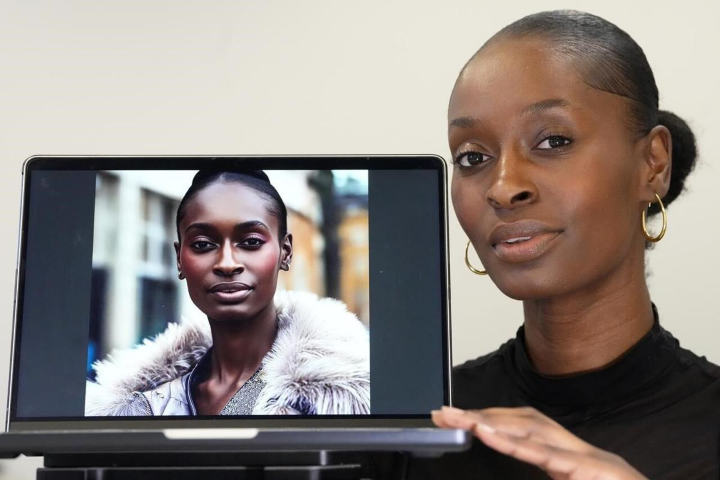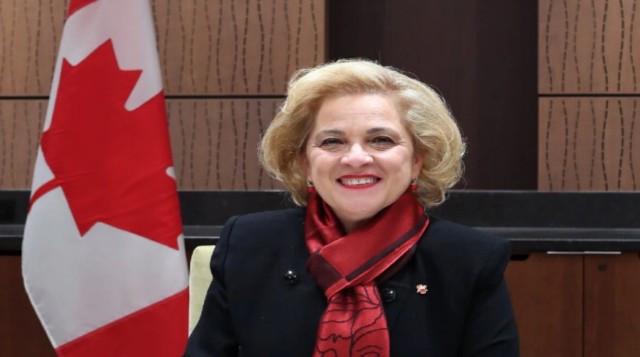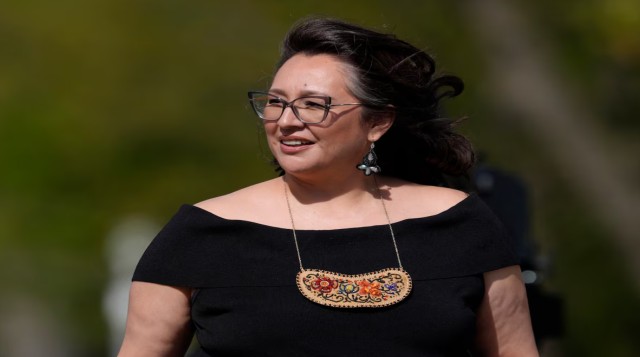
Fashion model Alexsandrah poses with a computer showing an AI generated image of her, in London, Friday, March 29, 2024.
In a fascinating twist, London-based model Alexsandrah finds herself with a digital doppelganger, crafted not from flesh and blood but from algorithms. This AI-generated twin has already stepped in for photoshoots, with Alexsandrah receiving recognition and payment akin to a human model.
The uncanny resemblance between Alexsandrah and her AI counterpart extends to the smallest details, as she notes, even down to the intricacies of their baby hairs. This development highlights the evolving landscape of creative industries, where AI is reshaping norms and raising questions about fair compensation.
Advocates view the integration of AI in fashion modeling as a boon for diversity, showcasing a broader range of body types and demographics. They argue that this inclusivity empowers consumers to make more informed purchasing decisions, potentially reducing fashion waste stemming from returns. Moreover, digital modeling offers cost savings for companies and opens doors for tech-savvy individuals.
However, critics express apprehensions about the implications of digital models displacing human counterparts. Concerns abound regarding potential job losses for models, makeup artists, and photographers. There's also the risk of consumers being misled into perceiving AI models as real individuals, while companies might exploit these digital creations to fulfill diversity quotas without hiring actual people.
Sara Ziff, a former model and advocate for workers' rights in fashion, underscores the risk of AI perpetuating existing inequalities, particularly for women of color who have historically faced barriers in the industry. The prospect of AI replacing human models threatens to undermine the progress made in fostering inclusivity.
The controversy surrounding AI in fashion came to the fore when Levi Strauss & Co. faced backlash for testing AI-generated models to diversify its online platform. Despite clarifying its commitment to traditional photo shoots and live models, Levi's move sparked a broader conversation about the ethical use of AI in the industry.
While some retailers remain tight-lipped about their use of AI models, companies like Lalaland.ai are experiencing growing demand for their technology. Lalaland.ai's co-founder, Michael Musandu, emphasizes that AI models should complement rather than replace traditional approaches. By offering a variety of models, the technology aims to enhance the shopping experience while reducing waste.
For models like Alexsandrah, collaborating with AI opens new avenues in the industry. However, concerns linger regarding the ethical treatment of models and the need for regulatory safeguards. Yve Edmond, a model based in New York, highlights the importance of consent and fair compensation in utilizing AI technology.
As discussions around AI regulations gain traction, stakeholders advocate for transparency and accountability in its deployment. The Model Alliance, for instance, calls for legal protections to ensure models' rights are upheld in the digital realm.
Despite the controversies, Alexsandrah remains hopeful that ethical practices and regulatory measures can harness AI's potential for positive change. With proper oversight, AI could pave the way for greater inclusivity in the fashion industry, benefiting models of color like herself.















